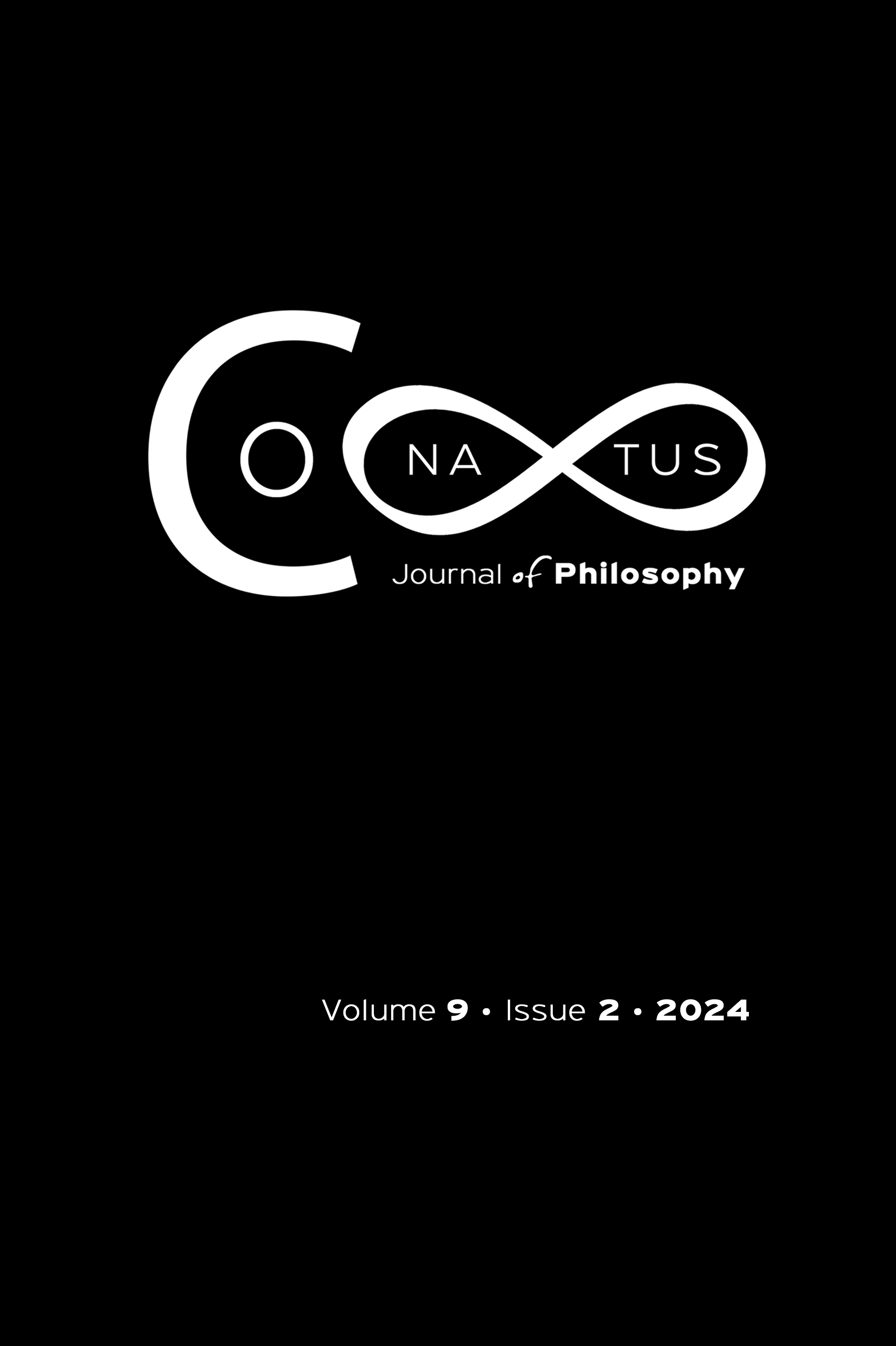Fixed Ideas and Ideologies: Developing a New Epistemology Rooted in Apathy

Abstract
Epistemologies are overwhelmingly riddled with biases, influenced by ideologies and fixed ideas. Max Stirner and Louis Althusser argue at length regarding the negative impact of these on our way of thinking. This paper argues that the only escape from Stirner's fixed ideas or Althusser's ISAs (Ideological State Apparatuses) is through an apathetic disposition to the truth – something very unphilosophical in nature. In order to create parallactic shifts in thought, we must also develop a new epistemology, one rooted in apathy. Through this, we can become true philosophers and thinkers moving towards a truth not solely determined by our pre-held assumptions.
Article Details
- How to Cite
-
Isrow, Z. (2024). Fixed Ideas and Ideologies: Developing a New Epistemology Rooted in Apathy. Conatus - Journal of Philosophy, 9(2), 103–117. https://doi.org/10.12681/cjp.34435
- Section
- Articles

This work is licensed under a Creative Commons Attribution-NonCommercial 4.0 International License.
Authors who publish with this journal agree to the following terms:
Authors retain copyright and grant the journal right of first publication with the work simultaneously licensed under a Creative Commons Attribution Non-Commercial International License (CC BY-NC 4.0) that allows others to share the work with an acknowledgement of the work's authorship and initial publication in this journal.
Authors are able to enter into separate, additional contractual arrangements for the non-exclusive distribution of the journal's published version of the work (e.g. post it to an institutional repository or publish it in a book), with an acknowledgement of its initial publication in this journal.
Authors are permitted and encouraged to post their work online (preferably in institutional repositories or on their website) prior to and during the submission process, as it can lead to productive exchanges, as well as earlier and greater citation of published work.





